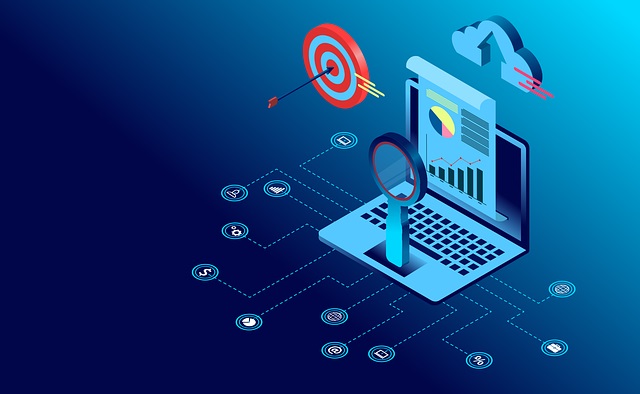- Data collection is almost always a part of modern games today.
- Gamers have various rights when it comes to data collection, including the right to deletion and access.
- Being aware of these rights is important since data can be easily misused if it falls into the wrong hands.
In today’s world, gaming isn’t only about having fun and getting rid of boredom. Gaming is filled with social interaction, competition, and virtual identities; for some, it is even considered a job.
Gaming companies use this to their benefit and collect a lot of data about the players and audiences. Although this data is used to improve players’ experience, it raises questions about privacy.
For instance, PlayStation has made signing into PSN mandatory for its PC ports, citing improvements to the user experience as a key reason. However, this login requirement means that Sony can monitor PC player metrics and include them as part of its PlayStation data.
Many players aren’t aware of how much of their data is collected and stored and how that information can be tracked and even shared with others. You must take proactive steps in safeguarding your data, whether you play games for fun or as a job.
Data Privacy Policies In Gaming

Understanding privacy policies is essential for safe gaming without the fear of deliberate public disclosure of data. The data collected from gamers can be used for several different purposes. In most cases, gaming companies collect data in order to improve their games and gaming experience.
For example, to know what features are most used and what features need to be improved. However, this data can also be used to personalize in-game ads or be sold to third-party advertisers. Gamers need to understand crucial parts of the data privacy policy.
What To Look For
By understanding what you need to look for you can make the best and most informed decisions. Here are some key components gamers should be on the lookout for:
Data Collection And Storage
Most privacy policies state what type of data the game collects, such as name, age, contacts, location, IP address, and device. Some games may also track your actions in-game, such as social interaction and time spent playing. Many companies also include a line on how they store your data and what they do to secure it.
Data Usage
The policy should explain how this data will be used for users to understand how much control they are giving away. While most companies claim to use it for the same purpose of improving the user experience, others may use it for different purposes such as the development of new products or research.
Data Sharing
In many cases, data does not stay with just one company. Data can be shared with third-party advertisers, partners, or other game developers. This part of the policy tells users with whom data might be shared and why.
Data Security
All responsible gaming companies will give you details on what data is collected, why is it stored and shared and how is it secured. Some companies even use encryption and regular data audits.
What Rights Gamers Have

Laws apply in the digital world when it comes to the misuse of personal data. Here are some rights that are offered, but keep in mind some of them may vary depending on the region:
Right To Access And Deletion
Most privacy laws allow users to access their collected information and if necessary request deletion. Users can request a report of their personal data that the company decided to store. Some companies allow you to do that through your settings, while others might ask for a formal request. You can also delete that data by using data removal services that request that for you.
Right To Correct Information
If the data collected by companies has incorrect information, many policies allow users to correct it. This is important if this data can compromise your account and spread misinformation.
Right To Limit Data Sharing
This option is not always available, which is a downside. Some games provide options by adjusting privacy settings in order to avoid targeted ads. This option allows users to have more control over how their data is shared and used.
Risks of Data Misuse

Risks of data misuse can translate from the virtual to the real world faster than we can imagine especially when private information such as names, addresses, phone numbers, or locations is made public. Cyberattacks can lead to doxxing, which means all information is public, more often than not without consent.
This can expose users to identity theft or real-life risks, such as break-ins and stalking. It also makes that person vulnerable to all kinds of pranks. These risks are an everyday concern, as they can escalate in seconds.
Users need to safeguard their data and understand privacy policies, scan for their data, and make sure their rights are protected. Gaming is not only a fun thing to do, but it also brings income for companies and professional players that compete or stream.
Conclusion
As gaming continues to become a more prominent part of everyday lives, so do the risks of it. Whether you are a professional gamer or simply want to have fun, your data is important and needs to be safeguarded. Companies need your information in order to either improve the game and experience or sell the data to third-party advertisers.
Gamers should inform themselves about how their data is collected, and stored, where is it used, and whether is it being shared. Players should take time to understand what they can do to prevent risks such as misuse of the data or doxxing. Taking proactive steps such as understanding privacy policy, understanding rights, and analyzing databases can make gaming safer and more enjoyable.
Thank you! Please share your positive feedback. 🔋
How could we improve this post? Please Help us. 😔
[News Reporter]
Avinash is currently pursuing a Business degree in Australia. For more than three years, he has been working as a gaming journalist, utilizing his writing skills and love for gaming to report on the latest updates in the industry. Avinash loves to play action games like Devil May Cry and has also been mentioned on highly regarded websites, such as IGN, GamesRadar, GameRant, Dualshockers, CBR, and Gamespot.


 Threads
Threads

